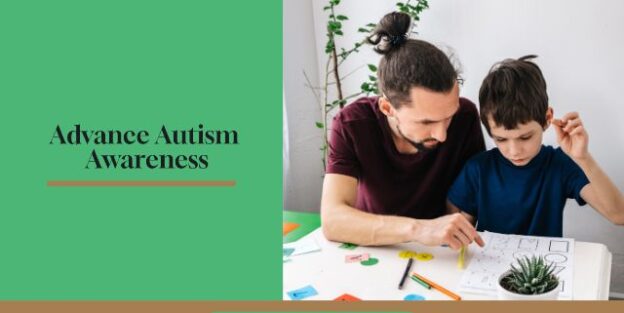The Autism Awareness online course is designed to provide comprehensive training on understanding autism spectrum disorders (ASD) and promoting inclusivity and support for individuals on the autism spectrum. This course aims to increase awareness, knowledge, and empathy towards autism, enabling participants to create more inclusive environments and provide appropriate support to individuals with autism.
What you’ll learn:
Module 1: Introduction to Autism Spectrum Disorders (ASD)
– Understanding the autism spectrum and its characteristics
– Overview of the diagnostic criteria for ASD
– Prevalence and demographics of autism
Module 2: The Autism Experience
– Gaining insight into the lived experiences of individuals with autism
– Understanding sensory sensitivities and processing differences
– Exploring the impact of autism on communication and social interactions
Module 3: Identifying Signs and Symptoms
– Recognizing early signs of autism in children
– Identifying behavioral, communication, and social challenges associated with ASD
– Differentiating between autism and other developmental disorders
Module 4: Understanding the Neurodiversity Paradigm
– Embracing the concept of neurodiversity and its implications
– Shifting perspectives from deficits to strengths
– Promoting acceptance and appreciation of individual differences
Module 5: Strategies for Communication and Social Interaction
– Effective communication techniques for individuals with autism
– Supporting social interactions and developing social skills
– Creating inclusive environments for meaningful connections
Module 6: Sensory Sensitivities and Environment Adaptations
– Understanding sensory sensitivities in autism
– Strategies for creating sensory-friendly environments
– Supporting individuals in managing sensory challenges
Module 7: Education and Inclusion
– Promoting inclusive education for individuals with autism
– Collaborating with educators and developing individualized support plans
– Advocating for accommodations and resources in educational settings
Module 8: Supporting Transitions and Independence
– Navigating transitions across different life stages
– Promoting independence and life skills development
– Supporting individuals with autism in employment and community integration
Module 9: Building Supportive Networks and Resources
– Connecting with autism support networks and organizations
– Accessing local and online resources for autism support
– Building partnerships with families and professionals in the autism community
Career Path:
Completing the Autism Awareness course can provide valuable knowledge and skills that can contribute to various career paths where understanding autism and supporting individuals on the spectrum is crucial. Here are some potential career paths:
1. Autism Support Worker/Therapist: Work directly with individuals with autism, providing support and interventions to enhance their well-being and development. This may include working in residential settings, community organizations, or therapeutic settings.
2. Special Education Teacher: Specialize in teaching and supporting students with autism in inclusive or specialized educational settings. Adapt curriculum, provide individualized support, and collaborate with other professionals to meet the unique needs of students with autism.
3. Autism Consultant/Trainer: Offer consulting services or training programs to individuals, families, and organizations seeking to create inclusive environments and enhance their understanding of autism. Provide guidance on strategies for supporting individuals with autism and promoting inclusive practices.
4. Behavioral Therapist: Focus on behavior analysis and intervention techniques to support individuals with autism. Work collaboratively with families and professionals to develop behavior management plans and implement effective strategies.
5. Autism Researcher: Contribute to autism research projects, investigating the causes, characteristics, and interventions related to autism. Work in research institutions, universities, or non-profit organizations to expand the knowledge base and inform evidence-based practices.
6. Advocate/Activist: Engage in advocacy and activism efforts to raise awareness, promote inclusivity, and advance the rights of individuals with autism. Work with advocacy organizations or start your own initiatives to create positive change in society.

 Understanding Attachment Theory: Building Healthy Connections
Understanding Attachment Theory: Building Healthy Connections  Challenging Behaviour Training
Challenging Behaviour Training 